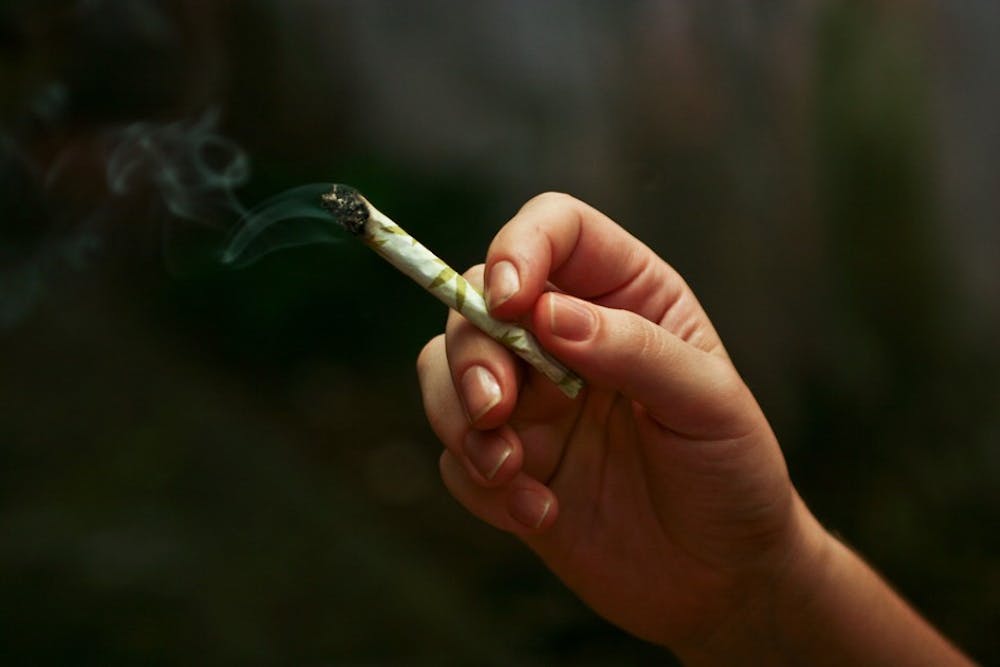
Although Philadelphia has decriminalized marijuana for possession of under 30 grams, not much will change in how Penn handles drug policy violations.
University policy continues to forbid marijuana use and possession on campus and in college houses.
Philadelphia’s decriminalization of marijuana is distinct from legalization, Vice President of Public Safety Maureen Rush said. It still remains illegal to use or possess any amount of marijuana in Philadelphia; however, possessing under 30 grams earns a citation rather than being an arrestable misdemeanor offense. This means that, if caught in possession of a small amount of marijuana on or around campus by a police officer, the offender could still be brought to a police station for citation paperwork.
However, Rush said that Penn Police rarely arrests students or staff for narcotics charges — which includes marijuana and harder drugs. In 2014, only one University-affiliated person was arrested for a crime involving any type of unspecified narcotic. “The hardest drug of choice for us is alcohol,” Rush said.
The biggest consequence that students face for marijuana use on campus is the staunch University policy on illegal and controlled substances. Executive Director of College Houses and Academic Services Martin Redman said that University policy will not reflect Philadelphia’s decriminalization.
“For Penn, and most educational institutions, federal law supersedes local because we receive federal funds for work-study and research grants,” Redman said. He added that all 11 college houses follow the University’s Code of Student Conduct when it comes to marijuana use and possession.
First-time offenders of illegal and controlled substance policies are admonished and educated about the danger of drug and alcohol abuse, Redman said. Certain college houses, including Ware and Fisher-Hassenfeld College Houses, have their own disciplinary committees made up of peers from the college house and house faculty advisors.
One freshman student, who wished to remain anonymous, described his experience facing the Ware disciplinary committee alongside several friends when they were caught with marijuana and drug paraphernalia. “We sat down in front of the disciplinary committee, told them our story. We were all truthful,” he said. “They let the first time people off with a warning.” Some of the student’s peers were second-time offenders and were required to attend meetings with counselors at the University’s Office of Alcohol and Other Drugs Program Initiatives.
Redman said that those who break University drug policy more than twice can be sent to the Office of Student Conduct, which has the right to enforce consequences ranging from the student’s removal from on-campus housing to expulsion from the University. However, Redman added, the University evaluates these violations on a case-by-case basis.
Above all, Redman said that the college houses seek to approach student controlled substance misconduct as a learning experience and as a way of identifying substance dependency. “We’re not a court system, we’re an educational institution,” he said. “We want to encourage behavioral change and give students the help that they may need.”
The Daily Pennsylvanian is an independent, student-run newspaper. Please consider making a donation to support the coverage that shapes the University. Your generosity ensures a future of strong journalism at Penn.
DonatePlease note All comments are eligible for publication in The Daily Pennsylvanian.




